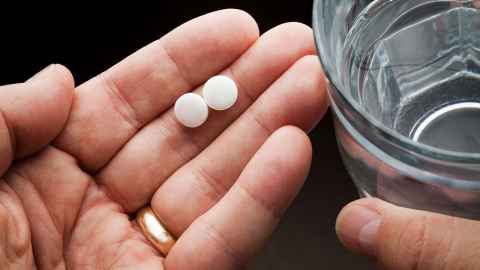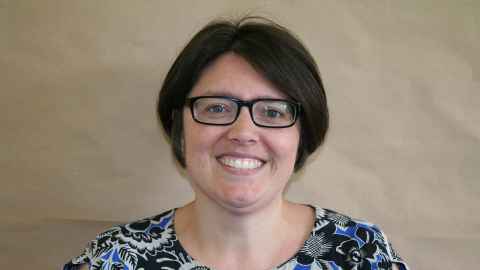New tool could make aspirin safer for preventing heart disease and stroke
27 February 2019
Auckland researchers have developed a new tool that could make aspirin a safer and better-targeted preventative for heart disease and stroke.

Thousands of New Zealanders take aspirin on a long-term basis to reduce their risk of cardiovascular disease (CVD), but the drug’s blood-thinning action carries its own risk: potentially fatal internal bleeding. The risk of bleeding varies from person to person, and until now, doctors had no objective way of assessing an individual patient’s risk.
A team of researchers from the University of Auckland’s Faculty of Medical and Health Sciences and Middlemore Hospital have developed bleeding risk models for women and men which provide just that: a personalised estimate of a patient’s risk of a major bleed, which can be used to predict their additional bleed risk if they were to start taking aspirin.
...it is likely that some people are receiving aspirin when they shouldn’t be and others are not receiving it when they could potentially benefit from it.
The research, now published in the journal Annals of Internal Medicine, has been praised in an accompanying editorial by a senior scientist in the United States as “a major step toward more evidence-based, individualized decision making about aspirin use to prevent CVD (and perhaps colorectal cancer)”.
Explains the paper’s lead author Dr Vanessa Selak, a senior lecturer in the Department of Epidemiology and Biostatistics in the School of Population Health, “For people who have already had a heart attack or stroke, the benefit of aspirin in reducing CVD generally outweighs its harms in increasing bleeding. However, guidelines are unclear in people who are at high risk of having their first heart attack or stroke.”
She says it is not known how many people take aspirin for CVD prevention in Aotearoa New Zealand.
“There is a lot of confusion about who should take it, so it is likely that some people are receiving aspirin when they shouldn’t be and others are not receiving it when they could potentially benefit from it.”
To identify the extra bleed risk from aspirin, the researchers had to first work out the baseline risk of major bleeds (ones that resulted in hospitalisation or death) in people at high risk of CVD who were not already taking aspirin. So, they crunched data from over 350,000 such people aged 30 to 79 who had seen their GP or practice nurse for a CVD risk assessment between 2002 and 2015.
The wealth of data maintained by the Ministry of Health allowed the researchers to virtually and anonymously track these people. By linking this initial data via anonymised NHI numbers to lab test results and Ministry of Health data on hospitalisation, pharmaceutical dispensing and mortality, the researchers discovered that the original pool of people went on to have 4442 major bleeds, of which 313 (seven percent) were fatal.
They identified a subset of known risk factors for CVD that were also risk factors for major bleeds: including older age, smoking, diabetes, ethnicity, deprivation, and use of blood pressure-lowering medication. Other risk factors for bleeds that were not also risk factors for CVD included a history of cancer, bleeding, peptic ulcer disease or alcohol-related conditions, or the use of corticosteroids or SSRI antidepressants.

“Our next step is to develop a calculator that integrates the benefits and harms of aspirin for prevention of CVD to make it easier for clinicians to work out, for a specific patient, whether the benefits of aspirin are likely to outweigh its harms,” says Dr Selak.
The aspirin benefit-harm calculator – likely to be a world-first – may be available by the end of the year.
The other researchers were Associate Professor Sue Wells, Professor Rod Jackson, Dr Katrina Poppe, Billy Wu, Associate Professor Matire Harwood, Dr Corina Grey, Romana Pylypchuk, Dr Suneela Mehta, and Adjunct Associate Professor Andrew Kerr.
The research was funded by the Health Research Council.
Media contact
Nicola Shepheard | Media adviser
DDI: 09 923 1515
Mob: 027 537 1319
Email: n.shepheard@auckland.ac.nz